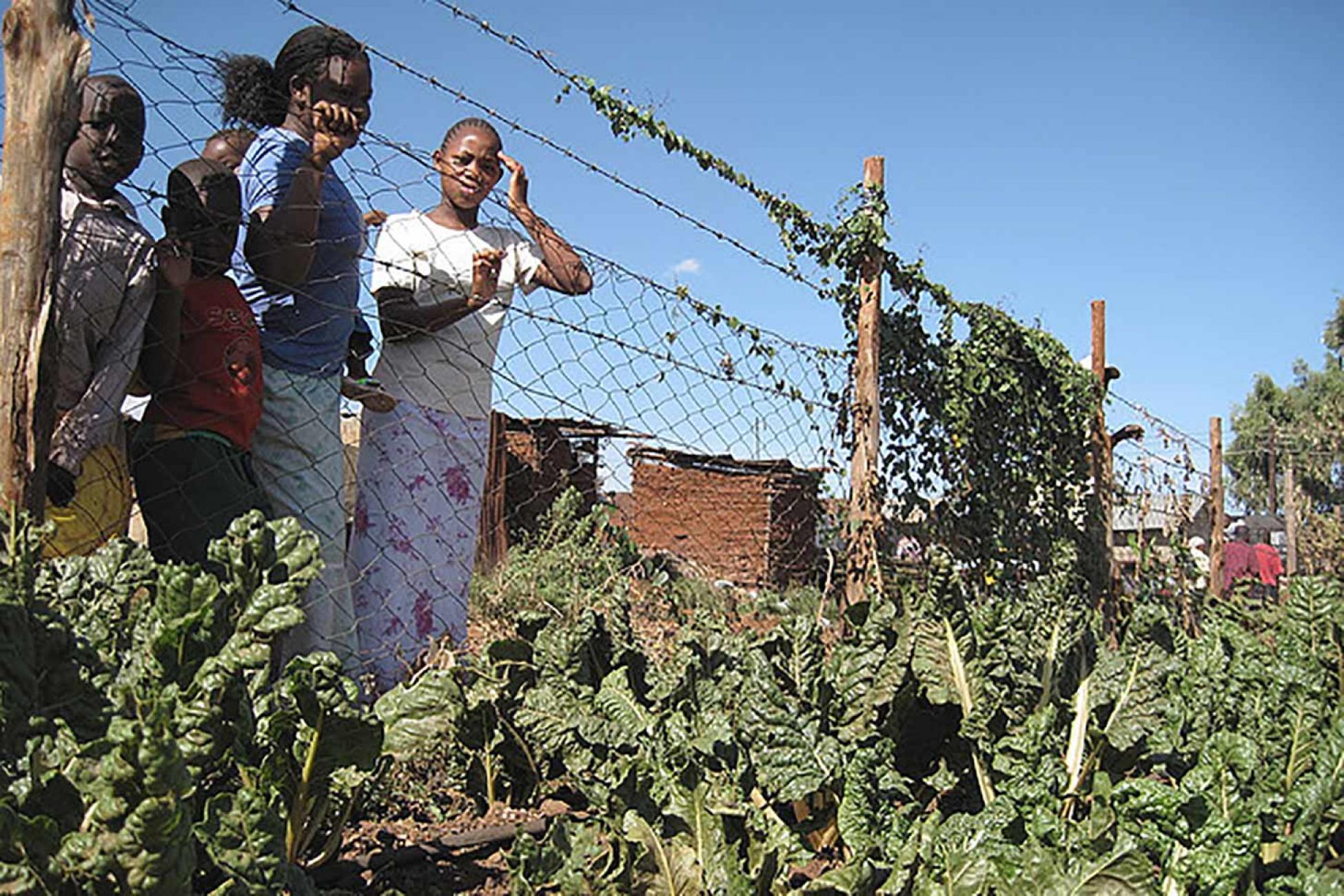A green revolution is taking place in Africa’s largest urban slum—Kibera. Within the maze of tiny pathways snaking between red, mud-walled shacks grow beans, sweet potatoes and lettuce out of re-purposed rice sacks.
Rusted sheet metal roofs span over 2.5 square kilometres—representing the homes of over 1.5 million people living in Kibera. The slum is located just on the outskirts Kenya's capital, Nairobi. As the city expands, so too does Kibera. Fast-paced urbanization has caused increased food insecurity for poor residents within the city limits. Urban farming provides a solution.
What makes this work personal for me is the drive to tell a positive African story from a continent bound by a world’s obsession with its failures. I want to show a story of success.
This summer I’ll explore the women spearheading this green revolution. Urban farming initiatives will provide a lens to showcase the larger struggles of food insecurity, gender inequality and environmental sustainability facing the African continent, but also, how Kenyan women are proving a home grown solution.
Camera gear will outweigh my clothes as I fly to Nairobi with only a backpack in tow. I’ll lug my camera around with an always handy notepad to jot down the stories of women transcending barriers in unimaginable circumstances. As a Master of Journalism student, this will be my first chance to do journalism abroad thanks to a grant from the International Development Research Centre.
Women in Kenya make up the majority of the subsistence farming sector—but own almost none of the land. This is especially evident in Kibera. Residents of Kibera, are considered by the government to be squatters. The land underneath Kibera is publicly and privately owned. Urban farmers in Kibera have virtually no rights to the land and so, it could be taken away at any moment. This type of insecurity is starting to shift as city officials in Nairobi are beginning to see the potential for urban farms to deliver change in the city’s food system.
Nairobi City County has historically been officially opposed to some urban farming practices, such as livestock rearing. The livestock further pollute urban waterways, increasing the risk of waterborne diseases. The legal grey-zone urban farmers find themselves in could soon be changing, which would bring with it more bylaws and regulatory frameworks to farm in more effective, safe ways.
Organizations like the Nairobi-based Mazingira Institute are right in the middle of this urban farming revolution. Mazingira provides education and resources to urban farmers throughout Kenya. The Institute’s dedicated staff and volunteers will be my ambassadors into the world of all that is green and urban during my stay in Nairobi.
Mazingira works with a Canadian partner, Rooftops Canada. Rooftops works in conjunction with Ryerson University and Toronto Public Health making “urban farming exchanges” to Nairobi possible for Canadian urban farmers. These exchanges provide an opportunity for Western urban farmers to exchange knowledge about urban farming techniques. While I will not be on exchange this summer, I will be documenting the knowledge exchange between Nairobi and Western cities like Toronto.
My aim is to tell a story about urban farmers leading the charge in the sustainable green revolution. Unlike the post-WWII green revolution, this new wave is calling for a sustainable approach to food security and women’s empowerment.
What makes this work personal for me is the drive to tell a positive African story from a continent bound by a world’s obsession with its failures. I want to show a story of success, framed in an Afro-positive way— something so rarely seen in media today.
As a graduate of African Studies and International Relations from the University of Toronto, I’ve been equally transfixed and disturbed with an image of Africa that ascribes to the same colonial tropes carried on through the West’s contemporary engagement.
I want to highlight an opportunity for the West to learn from urban farmers in Kibera. Knowledge production flowing from Africa to the West is something to celebrate. The story of food is human. To survive we all need to eat. Urban farmers of Kibera are an untapped resource to provide greater food security and challenge gender inequality in East Africa.
I will tell their story.
Add this article to your reading list




